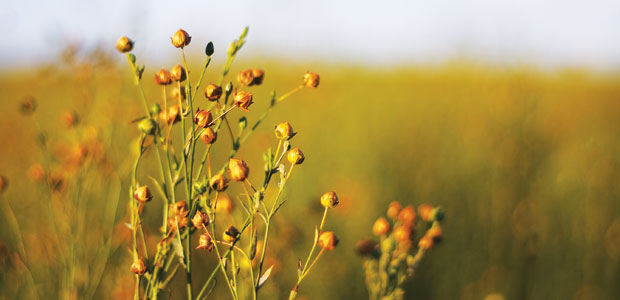Advertisement
The Magic Seed
Food trends come and go. But today, we’re still eating some things that our caveman ancestors were eating centuries ago. Seeds have been an important, quick-and-easy source of nutrition for at least 12,000 years. Cavemen needed nutritious snacks while hunting; seeds were easily available then, and still are today. Seeds are packed with nutrients such … Continued

Food trends come and go. But today, we’re still eating some things that our caveman ancestors were eating centuries ago. Seeds have been an important, quick-and-easy source of nutrition for at least 12,000 years. Cavemen needed nutritious snacks while hunting; seeds were easily available then, and still are today.
Seeds are packed with nutrients such as fibre, essential fats, and even protein. “I suggest them to patients because nuts and seeds are rich in vitamin E, minerals (especially magnesium), and fibre. They also contain quantities of essential fatty acids (EFA) that cannot be made by our bodies,” says Kathleen Butler, RD. Flax, pumpkin, and sesame seeds contain phytosterols, which are EFAs that protect against heart disease. Phytosterols are believed to lower cholesterol and enhance the immune system while also lowering the risk of some cancers. With so many good things packed into a tiny package, everyone could benefit from the addition of seeds to their diets.
You could already be eating seeds. “Ninety percent of what we eat comes either directly from seeds or from animals that eat seeds,” says Dr. J. Derek Bewley, a professor in the department of molecular and cellular biology at the University of Guelph. “In short, they are unavoidable as a food source.” Many plants contain seeds that can be enjoyed on a daily basis. Pumpkin and sunflower seeds, pomegranates, and almonds are all plant seeds that are delicious, nutritious, and easy to eat every day.
Special Seed Needs
Are you a vegetarian? If so, seeds should play an even larger role in your meals. According to Bewley, you can exist almost solely on a vegetarian seed diet if you balance your meals with cereal seeds and legumes. If vegetarians in the wild–like elephants–can use the essential components from seeds for building their bodies, so can you. Bewley says, “While the common phrase is ‘Grass is life,’ in truth, it should be ‘Seeds are life.?
How can You Incorporate Them on a Daily Basis?
Even though many of the foods you eat already have been derived from seeds, you can still enjoy health benefits by eating seeds directly. Flaxseeds, which should be ground up to release the alpha-linolenic acids they contain, can be added to almost anything. Try them on your morning cereal or evening salad. Nutrient-rich pumpkin seeds and antioxidant-packed sunflower seeds can be enjoyed as a snack on their own or mixed into meals, while cholesterol-lowering sesame seeds can be used in dips like tahini or in Asian cooking.
The cavemen were onto something when they began to use seeds as a food source. Seeds are rich in nutrients and they are a powerful weapon for fighting diseases and lowering cholesterol. A little seed can go a long way.





